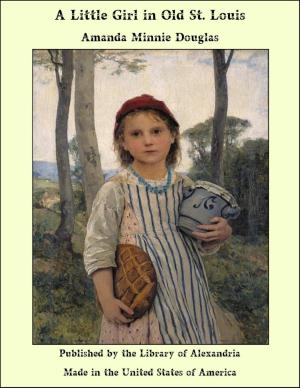The Americanism of Washington
Nonfiction, Religion & Spirituality, New Age, History, Fiction & Literature| Author: | Henry Van Dyke | ISBN: | 9781465571267 |
| Publisher: | Library of Alexandria | Publication: | July 29, 2009 |
| Imprint: | Library of Alexandria | Language: | English |
| Author: | Henry Van Dyke |
| ISBN: | 9781465571267 |
| Publisher: | Library of Alexandria |
| Publication: | July 29, 2009 |
| Imprint: | Library of Alexandria |
| Language: | English |
The Inhumanities of Parents--Corporal Punishment. Not long ago a Presbyterian minister in Western New York whipped his three-year-old boy to death, for refusing to say his prayers. The little fingers were broken; the tender flesh was bruised and actually mangled; strong men wept when they looked on the body; and the reverend murderer, after having been set free on bail, was glad to return and take refuge within the walls of his prison, to escape summary punishment at the hands of an outraged community. At the bare mention of such cruelty, every heart grew sick and faint; men and women were dumb with horror: only tears and a hot demand for instant retaliation availed. The question whether, after all, that baby martyr were not fortunate among his fellows, would, no doubt, be met by resentful astonishment. But it is a question which may well be asked, may well be pondered. Heart-rending as it is to think for an instant of the agonies which the poor child must have borne for some hours after his infant brain was too bewildered by terror and pain to understand what was required of him, it still cannot fail to occur to deeper reflection that the torture was short and small in comparison with what the next ten years might have held for him if he had lived. To earn entrance on the spiritual life by the briefest possible experience of the physical, is always "greater gain;" but how emphatically is it so when the conditions of life upon earth are sure to be unfavorable! If it were possible in any way to get a statistical summing-up and a tangible presentation of the amount of physical pain inflicted by parents on children under twelve years of age, the most callous-hearted would be surprised and shocked. If it were possible to add to this estimate an accurate and scientific demonstration of the extent to which such pain, by weakening the nervous system and exhausting its capacity to resist disease, diminishes children's chances for life, the world would stand aghast. Too little has been said upon this point. The opponents of corporal punishment usually approach the subject either from the sentimental or the moral standpoint. The argument on either of these grounds can be made strong enough, one would suppose, to paralyze every hand lifted to strike a child. But the question of the direct and lasting physical effect of blows--even of one blow on the delicate tissues of a child's body, on the frail and trembling nerves, on the sensitive organization which is trying, under a thousand unfavoring conditions, to adjust itself to the hard work of both living and growing--has yet to be properly considered
The Inhumanities of Parents--Corporal Punishment. Not long ago a Presbyterian minister in Western New York whipped his three-year-old boy to death, for refusing to say his prayers. The little fingers were broken; the tender flesh was bruised and actually mangled; strong men wept when they looked on the body; and the reverend murderer, after having been set free on bail, was glad to return and take refuge within the walls of his prison, to escape summary punishment at the hands of an outraged community. At the bare mention of such cruelty, every heart grew sick and faint; men and women were dumb with horror: only tears and a hot demand for instant retaliation availed. The question whether, after all, that baby martyr were not fortunate among his fellows, would, no doubt, be met by resentful astonishment. But it is a question which may well be asked, may well be pondered. Heart-rending as it is to think for an instant of the agonies which the poor child must have borne for some hours after his infant brain was too bewildered by terror and pain to understand what was required of him, it still cannot fail to occur to deeper reflection that the torture was short and small in comparison with what the next ten years might have held for him if he had lived. To earn entrance on the spiritual life by the briefest possible experience of the physical, is always "greater gain;" but how emphatically is it so when the conditions of life upon earth are sure to be unfavorable! If it were possible in any way to get a statistical summing-up and a tangible presentation of the amount of physical pain inflicted by parents on children under twelve years of age, the most callous-hearted would be surprised and shocked. If it were possible to add to this estimate an accurate and scientific demonstration of the extent to which such pain, by weakening the nervous system and exhausting its capacity to resist disease, diminishes children's chances for life, the world would stand aghast. Too little has been said upon this point. The opponents of corporal punishment usually approach the subject either from the sentimental or the moral standpoint. The argument on either of these grounds can be made strong enough, one would suppose, to paralyze every hand lifted to strike a child. But the question of the direct and lasting physical effect of blows--even of one blow on the delicate tissues of a child's body, on the frail and trembling nerves, on the sensitive organization which is trying, under a thousand unfavoring conditions, to adjust itself to the hard work of both living and growing--has yet to be properly considered















